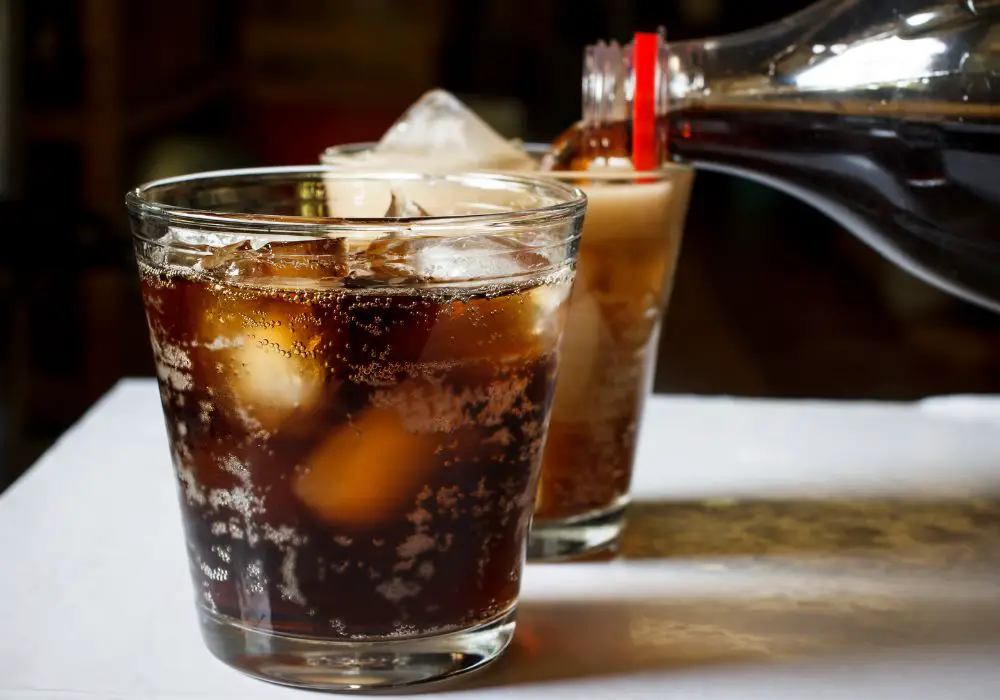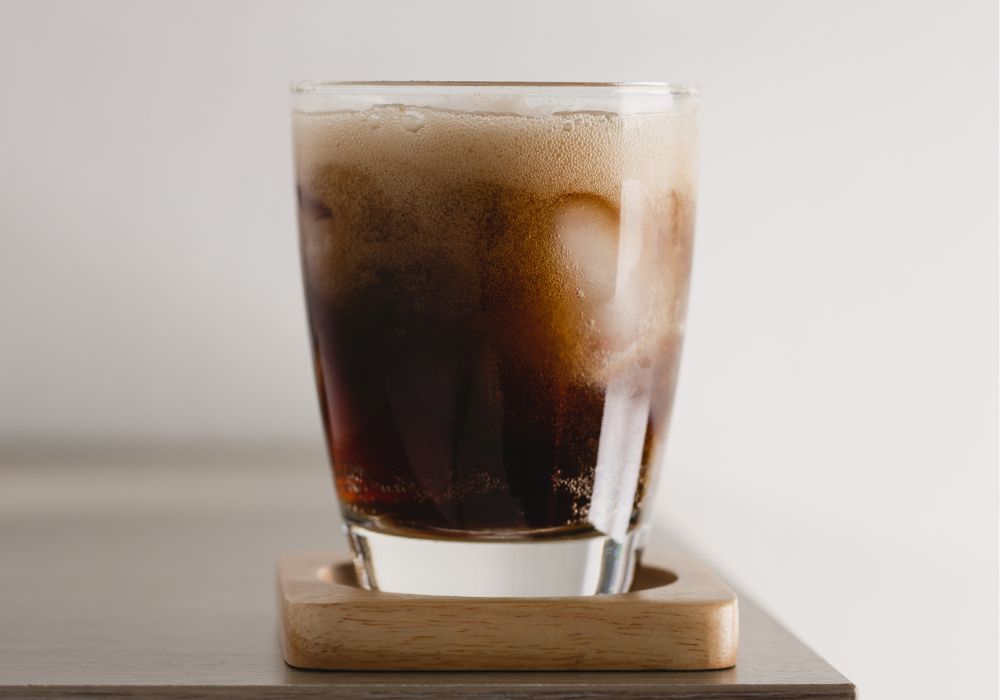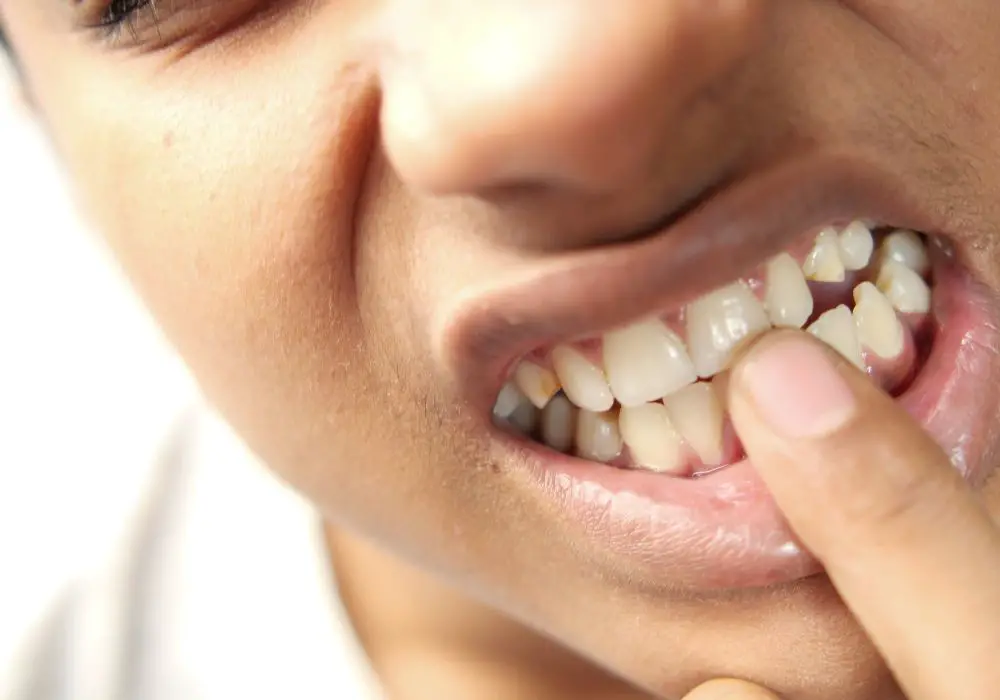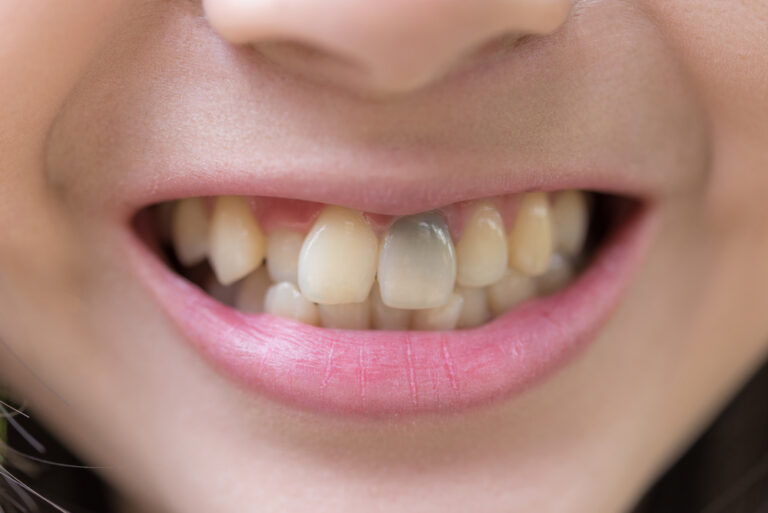Soda, also known as pop or carbonated soft drinks, is enjoyed around the world. However, frequent soda consumption has been linked to negative health effects, including dental problems like tooth sensitivity. This article explores whether drinking soda can cause sensitive teeth.
What is tooth sensitivity?

Tooth sensitivity, also called dentin hypersensitivity, is a common dental condition characterized by pain or discomfort in the teeth when exposed to hot or cold foods and drinks or pressure. It occurs when the dentin layer of the teeth loses protective covering, exposing nerve endings.
The main symptoms of tooth sensitivity include:
- Sharp pain when consuming hot, cold, acidic, or sugary foods and drinks
- Pain from brushing or flossing
- Discomfort from cold air or water contacting the teeth
Tooth sensitivity can range from mild irritation to severe pain. It may affect just one tooth or multiple teeth. The condition is often temporary but can become chronic without proper treatment.
What causes tooth sensitivity?
There are several potential causes of tooth sensitivity:
Receding gums
Gum recession exposes the root surface and dentin of the tooth used to being protected by the gums. This allows irritation of the uncovered dentin. Periodontal disease and aggressive brushing can cause receding gums.
Loss of enamel
The outer enamel layer of the tooth naturally wears down over time from chewing, grinding, and acid erosion. Once the enamel is gone, the exposed dentin leads to sensitivity.
Dental procedures
Dental treatments like teeth whitening and professional cleanings can make teeth sensitive temporarily.
Tooth decay
Cavities form holes in the enamel, allowing contact between the dentin and mouth. Decay under fillings can also cause sensitivity.
Cracked or chipped teeth
Fractures in the teeth expose the inner dentin layer to the mouth, leading to pain from hot or cold stimuli.
Can soda cause tooth sensitivity?
Yes, frequent soda consumption can lead to tooth sensitivity in a few ways.
Acidic pH
Carbonated soft drinks like cola and lemon-lime sodas have a very low pH, meaning they are acidic. The typical pH of soda ranges from 2.5 to 3.5. This acidity can erode the protective enamel covering the teeth over time, creating sensitivity.
Soda’s low pH also enables it to dissolve the mineral content of tooth enamel, through a process called demineralization. Demineralization makes teeth more porous and exposes dentin.
Sugar content
In addition to being acidic, soda is high in added sugars. The sugar feeds oral bacteria that produce acids as a byproduct, which can demineralize enamel and dentin. Bacteria may also irritate the exposed dentin.
Regular soda contains around 10 teaspoons (40 grams) of added sugars per 12-ounce serving. The sugars bathe the teeth in an acidic solution for long periods.
Carbonation
The carbonic acid created by soda’s carbonation may directly soften tooth enamel. Through erosion, carbonation allows easier access to the dentin for chemical irritation.
Furthermore, the bubbles in soda work their way into tiny crevices and grooves in the enamel. This enlarges the crevices, allowing more dissolution by acidic and sugary ingredients.
How does sensitive teeth from soda develop?

Tooth sensitivity from soda tends to develop slowly over time, through prolonged, frequent consumption. Here is the sequence of how it occurs:
- Soda’s low pH, sugar content, and carbonation erode and dissolve the enamel surface of the teeth.
- Enamel erosion exposes the underlying dentin, or reduces enamel to the thickness of dentin.
- With the protective enamel gone, the dentin tubules open to the mouth. These tubules contain fluid and nerve fibers.
- Contact between dentin tubules and mouth triggers nerve sensitivity to hot, cold, acidic, or sweet stimuli. Pain receptors send signals along the nerve fibers.
- Over time, chronic soda drinking can lead to extensive loss of tooth structure and severe hypersensitivity.
Factors like the amount and frequency of soda intake, oral hygiene habits, genetics, and health conditions determine how rapidly tooth sensitivity will develop.
Soda’s effects on teeth
In addition to sensitivity, regular soda consumption can cause other forms of dental damage:
- Dental erosion – Chronic acid and sugar exposure wears away enamel and dentin, leading to thin, translucent teeth prone to decay.
- Dental caries – The sugars in soda interact with oral bacteria to produce plaque acids that demineralize enamel and cause cavities.
- Dental staining – Ingredients like color additives can discolor and stain the teeth.
- Gum disease – Soda alters the oral microbiome, allowing bacteria involved in periodontal disease to thrive.
Tips to prevent and treat sensitive teeth from soda
If you regularly drink soda, there are some precautions you can take to lower your risk of developing tooth sensitivity:
- Limit soda intake – Drink water or unsweetened teas instead of soda to reduce your exposure to acid and sugar.
- Avoid swishing or holding soda in mouth – This limits contact time between the teeth and soda. Drink through a straw positioned towards the back of the mouth.
- Rinse with water – Swish water around your mouth after consuming soda to wash away acid and sugar residue.
- Chew sugar-free gum – This increases saliva flow to help neutralize acid and rinse teeth.
- Brush carefully – Use a soft-bristled brush and brush gently if you have sensitive teeth. Avoid abrasives.
- Use sensitivity toothpaste – Choose a desensitizing toothpaste containing ingredients like stannous fluoride, arginine, or strontium chloride.
- Get fluoride treatments – Fluoride strengthens enamel to protect against sensitivity. Ask your dentist about in-office treatments.
- Address gum recession – If gum recession is the cause, your dentist can suggest gum grafting procedures.
- Use tooth sealants – Sealants applied to the roots blocks external stimuli from reaching dentin.
- Wear a mouthguard – Custom night guards worn during sleep protect teeth from grinding damage.
- Get dentin bonding – Dentin bonding agents applied into the dentin tubules block sensitivity.
If sensitivity persists despite lifestyle changes, over-the-counter treatments, and home care, make an appointment with your dentist for evaluation and professional treatment. The sooner soda-related dental damage is addressed, the better the chances of reversing it.
Is sparkling water less harmful for teeth?
Sparkling water has become a popular alternative to regular soda. But is it a healthier choice for your teeth?
Sparkling water, soda water, seltzer, and carbonated water contain carbon dioxide, which forms carbonic acid in water. This gives it light effervescence and bubbles.
However, unlike traditional soda, sparkling waters generally do not contain added sugars or acids. They have a pH around 5-6, which is closer to neutral than soda but still somewhat acidic. Unflavored seltzers simply contain carbonated water and occasional natural mineral content.
The lower acidity means sparkling water is less destructive to tooth enamel than typical sodas. One study showed that sparkling mineral water caused only minimal enamel erosion compared to cola and lemon-lime sodas.
However, the carbonation factor makes sparkling water somewhat abrasive for teeth. The bubbles may amplify the effects of existing acids. Prolonged contact from swishing or holding can etch and erode enamel.
To reduce the risks of sparkling water:
- Choose plain, unsweetened seltzer over flavored
- Avoid sipping continuously; drink quickly
- Use a straw to direct toward the back of the mouth
- Rinse mouth with plain water after drinking
- Limit consumption to mealtimes
While less harmful than soda, sparkling water still contains acids that harm teeth with excessive use. Drink in moderation.
Soda alternatives that are tooth-friendly

If you wish to avoid tooth damage but crave the fizzy sensation of soda, some tooth-friendly alternatives include:
- Water with fruit – Infuse water with sliced citrus fruits, berries, cucumber, or mint for flavor without acid or sugar.
- 100% fruit juices – Opt for small servings of juice without added sugars and rinse mouth after.
- Milk – Plain milk is neutral pH and contains enamel-strengthening calcium and phosphate.
- Teas – Unsweetened iced tea or hot tea contain antioxidants that benefit dental health.
- Seltzer with juice – A small splash of 100% fruit juice in plain seltzer provides sweetness.
- Kombucha – Select low-sugar kombucha crafted via natural fermentation for a probiotic lift.
- Coconut water – The electrolyte profile of coconut water is ideal for hydration.
- Smoothies – Blend milk or yogurt with whole fruits like bananas for a nutrient-rich beverage.
Frequently Asked Questions about soda and sensitive teeth
Here are answers to some common questions about how soda consumption leads to tooth sensitivity:
How fast can soda cause tooth sensitivity?
Tooth sensitivity from soda may develop rapidly with frequent, heavy intake. In those who drink multiple sodas daily, noticeable sensitivity often occurs within weeks or months. With moderate soda drinking, it may take several months to a few years for damage to accumulate. Decay and erosion typically initiate sensitivity before gum recession does.
Does diet soda also irritate sensitive teeth?
Yes, while artificially sweetened diet sodas are lower in sugar, they remain highly acidic drinks. Diet colas have a similar pH as regular colas around 2.5 to 3.0. This acidity stimulates and exacerbates dentin hypersensitivity. The effects may be further amplified by the cooling sensation of artificial sweeteners.
Is it possible to reverse sensitivity caused by soda?
If caught early, sensitivity from soda erosion can possibly be reversed with diligent oral hygiene, fluoride exposure, decreased soda intake, and professional treatment. However, severe cases with extensive enamel loss may cause permanent sensitivity requiring restoration procedures. The prognosis depends on the degree of structural damage.
Which soda ingredient is worse for sensitive teeth – acid or sugar?
Acidity is likely the primary culprit, as even sugar-free diet sodas still provoke tooth sensitivity. Low pH directly erodes enamel, while sugar primarily works indirectly by fueling cavity-causing oral bacteria. However, the combination and frequency of acid and sugar in regular soda make it especially problematic.
What soda has the least acid? Is any soda safe for sensitive teeth?
No sodas are truly safe for sensitive teeth due to their inherently acidic and erosive properties. But generally speaking, ginger ale is among the least acidic sodas with a pH around 5.0 to 5.5, higher than colas or lemon-limes. However, ginger ale still presents a risk with frequent use, so those with dentin hypersensitivity should avoid all sodas.







